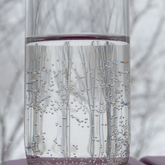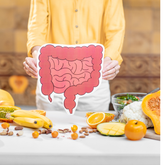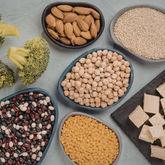As eco-conscious consumers, we make daily decisions with sustainability in mind from what we eat to how we hydrate. Clean water is essential for life, yet there’s a surprising amount of misinformation surrounding water filtration. If you're using or considering a filter like The Watery from Milky Plant, you're already taking a smart step toward safer, more sustainable hydration. But let's cut through the noise and debunk some common myths—backed by science.
Myth 1: Tap Water is Always Safe to Drink
Truth: While many countries have strict regulations, contaminants can still make their way into tap water.
The World Health Organization (WHO) and U.S. Environmental Protection Agency (EPA) agree that even treated municipal water can contain trace levels of heavy metals, pharmaceuticals, microplastics, and chlorine byproducts. A 2019 study published in Environmental Science & Technology found that microplastics were present in 81% of global tap water samples, and another study reported that lead was detected in over 20% of U.S. homes tested.
Eco Takeaway: Relying solely on tap water without filtration could mean unnecessary exposure to contaminants. A home filtration system like The Watery provides an added layer of protection without the need for single-use plastic bottles.
Myth 2: Bottled Water is Safer than Filtered Water
Truth: Bottled water is often just filtered tap water in a plastic bottle and it's not always better.
The Natural Resources Defense Council (NRDC) conducted a four-year study and found that roughly 25% of bottled water is repackaged tap water. Plus, the plastic packaging poses significant health and environmental concerns. When plastic bottles are exposed to heat or stored for long periods, chemicals like BPA and phthalates can leach into the water.
Eco Takeaway: Choosing a reusable bottle filled with freshly filtered water from The Watery dramatically reduces your environmental footprint while avoiding chemical exposure from plastics.
Myth 3: Boiling Water Removes All Contaminants
Truth: Boiling water can kill bacteria but it does not remove heavy metals, nitrates, or microplastics.
The Centers for Disease Control and Prevention (CDC) states that boiling is effective against pathogens like E. coli and Giardia, but ineffective against chemical pollutants such as arsenic, lead, or pesticide residues. In fact, boiling can actually concentrate these chemicals as water evaporates.
Eco Takeaway: For truly clean water, especially in urban environments, a high-quality filtration system like The Watery is far more reliable than boiling.
Myth 4: All Water Filters Are the Same
Truth: Not all filters are created equal effectiveness varies by design and filtration technology.
Some pitchers only reduce chlorine for taste, while advanced systems like The Watery are designed to remove 99.9% of bacteria, heavy metals, pesticides, and microplastics. Studies from institutions like the NSF International confirm that multi-stage filters are significantly more effective at reducing a broad spectrum of contaminants.
Eco Takeaway: Investing in a certified, multi-layer filter system offers real benefits for your health and the planet without the waste of disposable filters or bottled water.
Myth 5: Water Filters Waste More Water Than They Save
Truth: Some filtration systems, particularly reverse osmosis units, do waste water but not all filters do.
Reverse osmosis filters can waste up to 4 gallons for every 1 gallon of clean water, according to the EPA. However, The Watery is designed with eco-efficiency in mind, using gravity-driven or pressure filtration with minimal water loss.
Eco Takeaway: Not all filters are wasteful. Choosing a system designed for sustainability helps conserve both water and energy.
Filtering your water isn't just about taste it's about taking responsibility for your health and the environment. As more of us strive to reduce plastic waste and avoid harmful contaminants, knowledge is power. By understanding and debunking these myths, you can make smarter choices that align with your values.
With The Watery you're not just drinking cleaner water you're joining a movement toward a healthier, more sustainable world.
.















